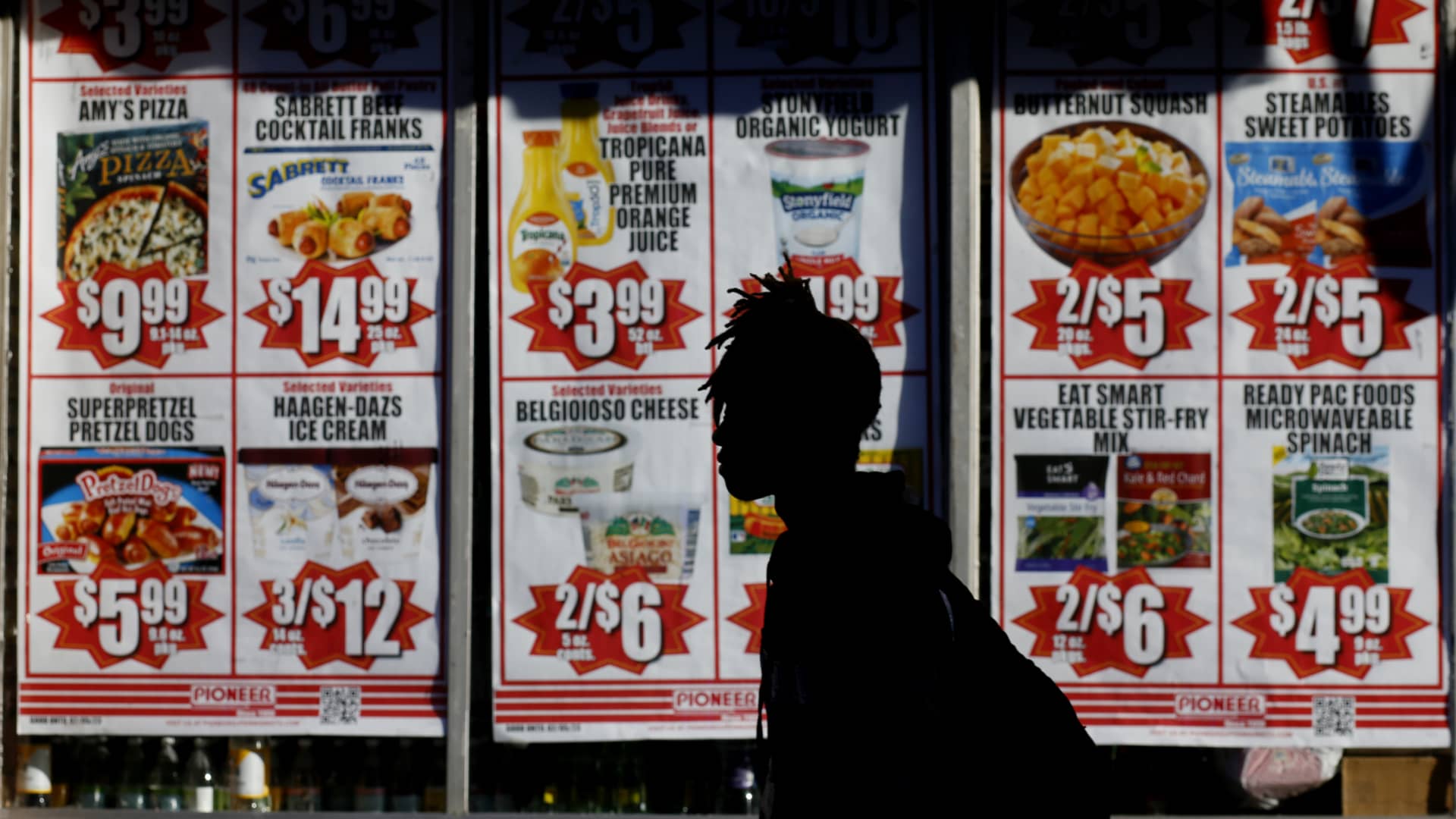
Prices on displayed in a New York grocery store on Feb. 1, 2023.
Leonardo Munoz | Corbis News | Getty Images
Donald Trump’s proposed tariffs will dent U.S. economic growth going into 2026, said Morgan Stanley’s chief global economist Seth Carpenter.
President-elect Trump has stated that he intends to impose a blanket tariff of 10% to 20% on all imports, along with extra tariffs ranging from 60% to 100% on goods imported from China. During the September Presidential debate, he described this approach as a means to extract funds from competing countries.
There is also a question of when and how swiftly these tariffs get implemented. In the event that they are enacted all at once, they could result in a “big negative shock” to the economy, Carpenter told CNBC’s Sri Jegarajah on the sidelines of Morgan Stanley’s annual Asia Pacific Summit in Singapore.
Carpenter, who maintained Morgan Stanley’s base case of these tariffs being spread over 2025, said they would lead to higher inflation.
“Then into 2026, we think growth starts to come down a great deal in the U.S. because of those tariffs and some of the other policies,” he cautioned.
“Very clear, tariffs push up inflation. Very clear, tariffs are a drag on growth for the U.S., not just for the countries that the tariffs are put on,” Carpenter added.
Mark Malek, CIO at brokerage firm Siebert noted that if the proposed tariffs are levied, especially on top of those already imposed by the Joe Biden administration, a slew of sectors including the automobile, consumer electronics, machinery, construction and retail space would see higher inflation.
Trump’s proposed 60% tariff on Chinese goods, along with Biden’s existing 100% tariff on Chinese-made EVs, will “significantly impact” the auto industry, while a universal 10% tariff on consumer electronics’ imports would increase costs for companies such as Tesla, Microsoft and Apple, Malek said. These higher costs will will likely be passed along to consumers, he added.
Though the U.S. consumer price index climbed 2.6% in October compared to a year ago, slightly more than September’s 2.4%, inflation has ebbed in the U.S. after years, and has prompted the U.S. Federal Reserve to cut rates.
Should sweeping tariffs be enacted, markets could price out interest rate cuts entirely for 2025, said Ben Emons, chief investment officer and founder of FedWatch Advisors, adding that tariffs could also “restrain” growth.




